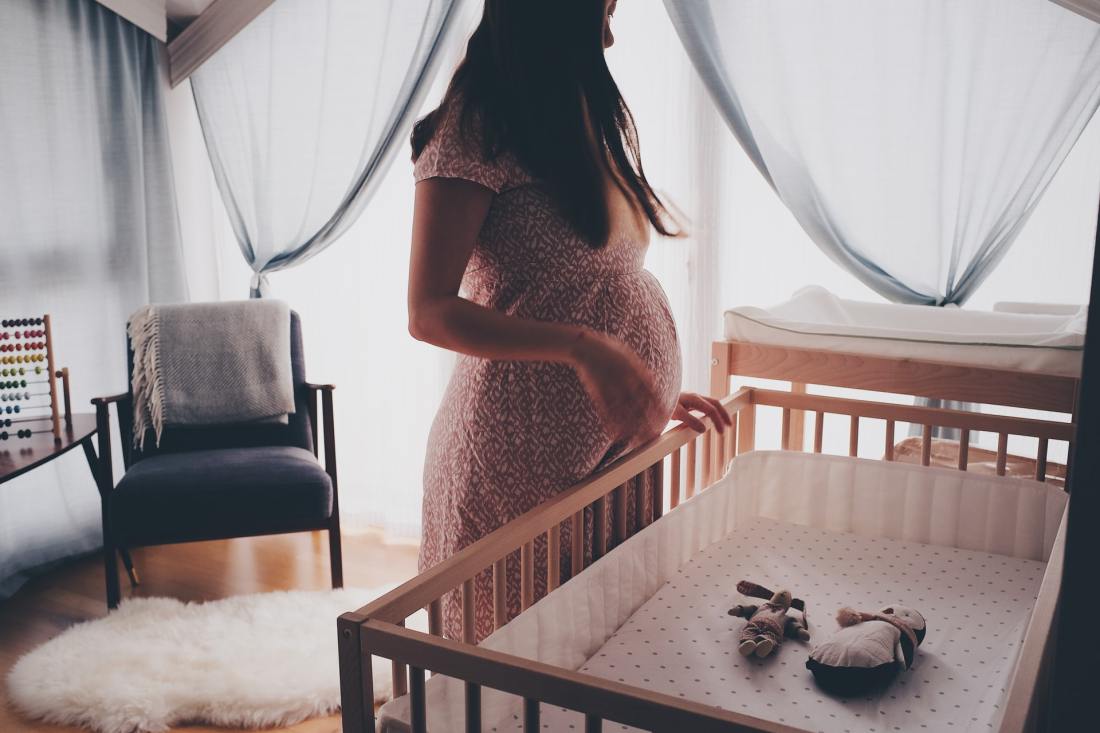Are you pregnant and wondering whether you should write a Will? The answer is yes! Find out how to write one and what to include.

Thinking about a time when you will no longer be around is a daunting prospect for anyone, but even more so for an expectant mother. Because of this, writing a Will is something that isn’t at the top of the list of many people’s priorities, particularly expectant parents.
Dying without a Will means that you will have no say over who will inherit from your estate and how your baby is cared for. So, despite your preconceptions, it is definitely an important document to have.
By making a Will, you can be sure that your wishes are carried out and that you can provide for your baby after you’re gone. Planning for the unexpected can also ease the burden on your loved ones during what will already be a distressing time. To discover more about why it’s so important, and about getting this documentation sorted, read on…
Why Writing a Will is Important
According to the insurer Royal London, 57 percent of UK adults do not have a Will in place. Many people mistakenly believe that their assets will be automatically passed on to their immediate family members and so don’t think they need to make a Will. However, this is not always the case, so why is it important to write a Will?
Save your family or friends from stress
Dying intestate (without a Will) can cause a massive headache for your loved ones. If you don’t write a Will that details your exact wishes of how you’d like your money and possessions to be distributed, it can make the process more time-consuming and stressful for them during what is already a distressing time.
Your assets go to the right people

Writing a Will requires you to list all of your money and possessions and decide how these are shared amongst your chosen family and friends. Without this, everything you own will be shared according to the law, which may go against what you’d originally intended. It could mean that family members who are financially dependent on you are left in a difficult situation.
Save on Inheritance Tax
Although Inheritance Tax is only payable on larger estates, you must remember to factor this in when thinking about where your money and assets go when you die. If you don’t have a Will your estate will be distributed according to intestacy rules and may be subject to Inheritance Tax, which could easily be avoided.
Why Having a Will is Especially Important When You’re Pregnant
Having a Will is always important, particularly if you have a large amount of money or assets. But, it’s even more important to have one in place if you’re pregnant or if you have recently had a child.
No one knows what’s around the corner, and so writing one means that your baby will be taken care of according to your wishes, should the worst happen. Two of the main things you should consider when making your Will are:
Who would look after your baby if something happened to you?
One of the most important things to consider when making your Will is who would take over the care of your baby should anything happen to you. It’s not a situation any parent wants to think about, but it can help give you peace of mind.
If both you and your baby’s other parent were to die and you did not leave a Will, the decision as to who would care for your baby would be with the court. This means you would not have control over who looks after your child.
So, appointing a person as a legal guardian of your baby, until they are 18, ensures that your child will be in the care of someone you trust, if you were to pass away unexpectedly. Without a Will, it can take time for the relevant authorities to place your baby with a suitable new guardian, and they may even end up in the care system. So, choosing a guardian in your Will means they can step in quickly to take care of your child.
Covering the costs of your baby’s care
Many people today are choosing not to get married, and some mistakenly believe that if they have been together for a certain amount of time, then they are considered ‘common law spouses’. Unfortunately, this isn’t true, and unmarried partners are not recognised under the Rules of Intestacy. This means your partner may not receive anything from your estate without a Will in place.
Without a valid Will, your partner may not have the right to stay in the family home or have enough money to care for your baby. Therefore, it’s vital that you include your partner in the document so that they and your baby are taken care of financially.
Similarly, if you are appointing guardians in your Will, it can be helpful to leave an inheritance in a Trust, that the guardian can access to help cover any childcare costs.
How to Write a Will
There are several different ways to write a Will, with varying costs. In order to choose the right option for you, read on to find out what to expect from the three main Will-writing options.
Using a solicitor
Solicitors are experts in their field and so can help you write a valid Will that includes everything you need to cover. That said, they can be expensive, so you should use a solicitor if you have a particularly complex estate, for example:
- If you think your estate may be subject to Inheritance Tax;
- If your family situation is complicated, e.g. you have children with former partners;
- If you have specific wishes about a specific family member you wish to support;
- If you have assets outside of the UK;
- If your permanent residence is not in the UK;
- If you own a business.
Talking these things through with a trusted solicitor can help give you the peace of mind you need that your affairs will be dealt with correctly when you pass away. Costs can start from £150 for a single Will and go up to around £600 for an estate that is very complex, according to the Money Advice Service.

DIY
Writing your own Will is the cheapest but also the riskiest option. Technically, anyone could write their Will on a piece of paper and it would be valid, so long as it was signed by two adult independent witnesses. Templates can be found online or in stationery shops for as little as £10, but they should be bought with caution.
Writing your own Will should only be used in very simple situations where you are married and want to leave everything to your spouse, or if they die before you, and you want to leave everything to your children. For anything more complex, such as the examples above, you should avoid writing your own Will and seek other options.
Will-writing service
A Will-writing service is more expensive than a DIY Will, but a lot cheaper than using a solicitor. Prices usually start from around £75 and can vary depending on any extras you require. Some charities offer a free Will-writing service, but they usually hope for a donation in return.
It is important to remember that a Will-writer may not necessarily be legally qualified and that they aren’t regulated in the same way that solicitors are. So, Will-writing services should only be used if your Will is going to be fairly simple. As stated previously, anything more complex should be handled by a solicitor.
Whether you choose to meet a Will-writer face-to-face or online, check that they belong to one of the following organisations either The Society of Will Writers or The Institute of Professional Will Writers.
What to Include in Your Will
Now that you know why it’s important to leave a Will to protect your loved ones, you need to know what to include to protect your baby.
Appoint a guardian(s) for your baby
If both you and your baby’s other parent were to die, it’s important to have a guardian in place who will take over responsibility of your baby until they turn 18. This is a decision that needs to be considered with care, as the guardian will be responsible for all decisions in your baby’s life and paying for their care. It’s also important to discuss the role with the person or people who you will potentially be appointing, so that they understand their responsibilities beforehand.
Don’t assume that if you don’t appoint a guardian your baby will be placed in the care of your closest relatives, as this isn’t always the case. Also, make sure you choose more than one guardian just in case one of them dies or becomes unable to carry out their responsibilities.
Leaving your baby an inheritance
In your Will, you should plan to divide your finances between your partner, your children and then anyone else you wish to include. If you leave an inheritance for your baby, it will automatically be held in a Trust until they turn 18, although you may wish to set a higher age for your child to access their inheritance.
This Trust will be looked after by Trustees appointed by you. A guardian may wish to ask the Trustees for payments from the Trust to cover certain childcare costs.
Then, when you are listing your assets, don’t forget things like pensions, insurance and digital assets such as cryptocurrency, which aren’t automatically passed down within your Will.
Appointing a Trustee
Appointing a Trustee or Trustees of your baby’s inheritance needs just as much consideration as appointing a guardian. This person will be in control of your baby’s finances so it should be someone who you trust.
Most people will appoint their partner to be the Trustee but, as with guardians, you should choose more than one Trustee just in case anything happens to your partner as well.
Updating current Wills
If you already have a Will, you should update it if you’re pregnant to include the provisions listed above for your baby. Generally, it’s a good idea to review your Will every two to five years to check if it still reflects your wishes and situation. Other circumstances where you should update your Will include:
- If you get a divorce or if you get married
- If you have another child
- If you move to a new house
- If you come into significant money
- If you move to another country, for example Scotland has different rules to England
Plan for Your Baby’s Future
Writing a Will is always a good idea, but it’s especially important if you’re pregnant or a new parent. You can rest assured that your wishes will be carried out, that your baby will be protected by trusted guardians, and that their inheritance will be protected by your appointed Trustees.
As we’ve seen, there are various Will-writing options but, whichever one you choose, make sure you have considered all your assets and have planned the best possible future for your baby should the worst happen.
How did you find the Will-writing process? Have you got any tips to share? Let us know in the comments down below.
Collaborative Post

